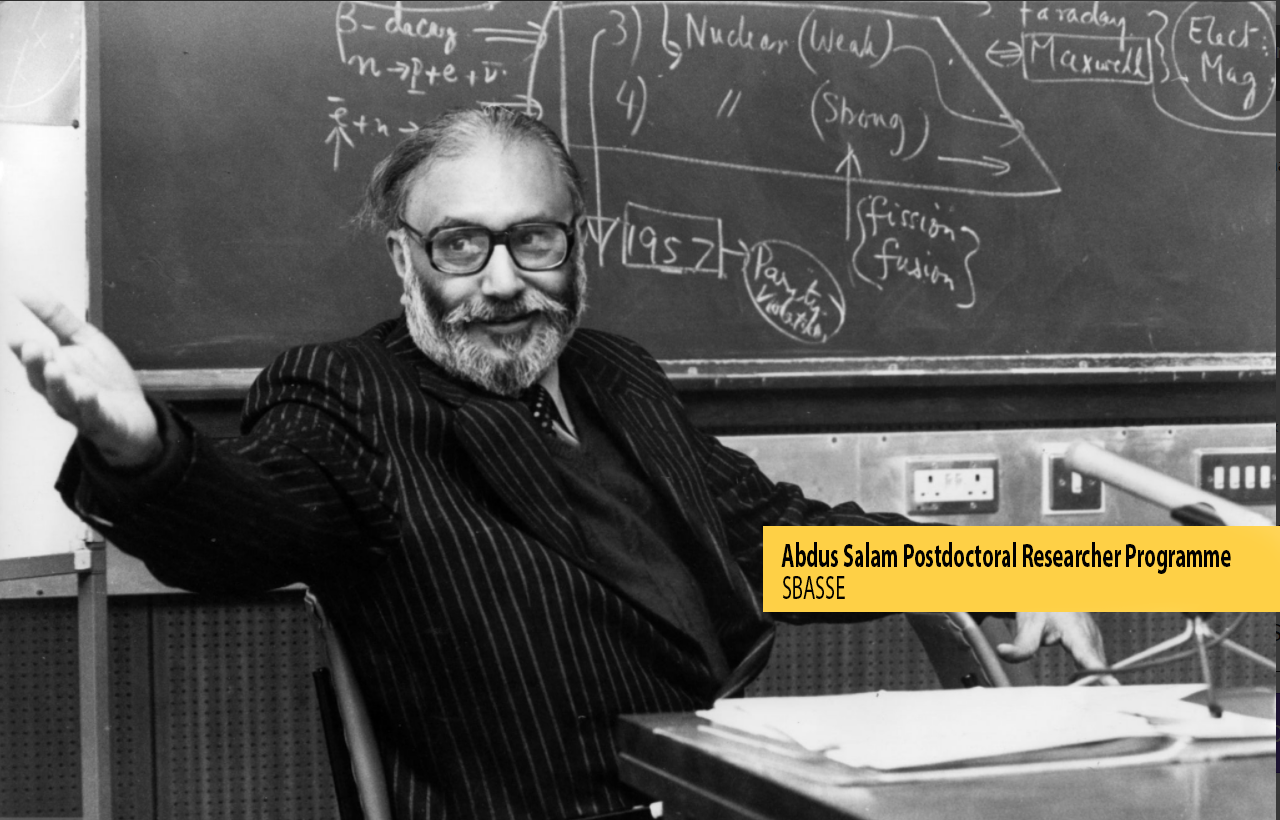Abdus Salam Postdoctoral Researchers
One year postdoctoral position at SBASSE

The Syed Babar Ali School of Science and Engineering (SBASSE) is offering up to two postdoctoral research fellowships to enable outstanding candidates to develop a research programme in collaboration with faculty members at one of Pakistan’s top research universities. Fellowships are awarded for one year in the first instance, renewable for a second year, and include support for research travel and/or consumables in addition to a stipend. The Fellowships are named in honour of Prof. Abdus Salam, Pakistan’s Nobel Laureate in Physics, and may be held in any of the SBASSE departments: Physics, Mathematics, Chemistry, Life Sciences, Electrical Engineering or Computer Science. Applications from female candidates and candidates with research experience outside Pakistan are particularly welcome. The closing date for applications is Monday, 6th June 2025.
To submit an application, please submit your CV, a 1 or2 page research plan and a cover letter naming at least two referees to the SBASSE Dean’s Office (jessica.fairy@lums.edu.pk). You should also obtain a letter from a current faculty member at LUMS that states that they are willing to support your work and that they believe your research plan to be practical. The Dean’s Office (email as above) can suggest names of faculty members to approach for this letter.
Fellows will be entitled to a salary of up to PKR 300,000 per month and research expenses of PKR 750,000. Additionally, international post-doctoral fellows based outside Pakistan will be provided with a one-way economy-class round-trip air ticket.

